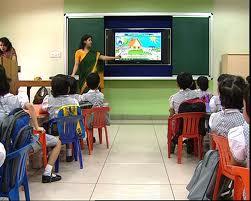User:Smangal
Continuous Comprehensive Evaluation
Need for Continuous Comprehensive Evaluation
The quality of school education remains as the primary concern in order to achieve the objective of enstrengthened human resource for national development. Such quality parameters need to be addressed through systemic reforms of structure and functions of school education. The quality parameters that demand due attention are the system of preparing teachers and the most essential structural feature- the examination system. For education to remain a nurturing experience for all children, irrespective of their socio-economic and cultural backgrounds, concrete reforms in the instructional process, complementing the assessment procedure are needed. We all are familiar with the assessment and evaluation practices carried out in schools that aim to measure the knowledge and understanding outcomes of learners, neglecting the evaluation of skills and higher mental abilities. While the major focus of school education is towards all round development of the child, least attention is paid to the educative process involved and to the assessment of students’ personal development.
The National Policy of Education (1986) and the Programme of Action (1992) followed by the National curriculum Framework of School Education (2000 & 2005) reiterated the need for developing the personal and social qualities of learners. The Position Paper on Examination Reforms (National Curriculum Framework 2005) proposed Continuous and Comprehensive Evaluation in order to provide space for creative teaching and in turn provide a diagnostic tool for producing learners with greater skills. They stressed the point that evaluation should be comprehensive in nature, wherein all learning experiences pertaining to scholastic, co-scholastic, personal and social qualities are assessed. And since learning is a continuous process, assessment also has to be continuous. CCE fundamentally aims at bringing a paradigm shift from examination to effective pedagogy which subsumes assessment into the instructional process itself. While the pedagogy has to be constructive in nature, we aim at designing a teaching learning process where the student and the teacher actively construct knowledge and apply it in situations. Thus, a fertile and robust education needs to be nourished through student involvement, enhanced and enriched learning experiences and unobtrusive techniques of assessment. The role and dignity of teachers in this function needs to be redefined and strengthened.
Continuous and Comprehensive Evaluation provides the teacher with ample degrees of freedom to creatively design and implement instruction and its assessment procedures. Although many schools have been practicing CCE but still the assessment fails to be formative in the sense that it remains mainly for ‘measuring’ rather than ‘enhancing’ learning. Enhancing creativity, flexibility, active engagement of pupils with teachers are some of the foundations on which formative assessment rests. A teacher has to be equipped with the latest tools and techniques of teaching-learning, like ICT and other strategies in order to provide a conducive learning environment with sustained student interest. Apart from the cognitive and psychomotor abilities of a teacher the affective domain also has to be exercised in order to understand the attitudes and values of students. There is ample evidence that a teacher with high Emotional Intelligence can change the experiences of students from enriching to empowering and thus lead to better achievement in all spheres of assessment.
Strengthening Teacher Education Programmes for CCE
Considering the above facts and the laudable efforts made by the CBSE in this direction, there is a dire need to enstrengthen our teacher training programme both at the preservice and inservice levels in order to implement the CCE successfully. It would be logical to stress upon the functional systemic reform in the sense of a cohesive functioning of schools and teacher education institutes in tandem with each other. The quality of teacher education needs to be reformed and the tenets of this education have to be reframed in order to achieve the farsighted aim of quality education.
Research has confirmed that training in CCE is fruitful in improving the formative assessment skills of the teachers which in turn raises the standards of achievement in pupils by constant feedback, remediation and improvement of classroom instructional strategies based on the evaluation results. It is imperative to equip the teachers with the essential skills and competencies of evaluation right from the preservice level so that they would be able to integrate evaluation well with their teaching-learning process.
The inservice teacher education should be used for updating teachers with the latest innovations in CCE and for solving their classroom problems and inquiries. It cannot be an event but rather it’s a process which entails school practices and reflection on them thereafter. Interaction of teachers through Workshops and school follow-up should form the basis of such programmes. This self-reflective inquiry conducted by teachers in schools in order to improve their own practices, their understanding of these practices and the situations in which the practices are carried out, becomes ‘action research'. Classroom Action research emphasizes the involvement of teachers in problems in their own classrooms and emphasizes sharing of experiences of diverse classroom practices. The feedback from CCE can form the basis for classroom action research and the results of the research become all the more momentous when shared with other teachers during the in-service training sessions.
This calls for a discussion and deliberations on the issue between the stakeholders of school education and teacher education. Hence we envisage a new vision of teacher education which is more responsive to changes in the school system.
